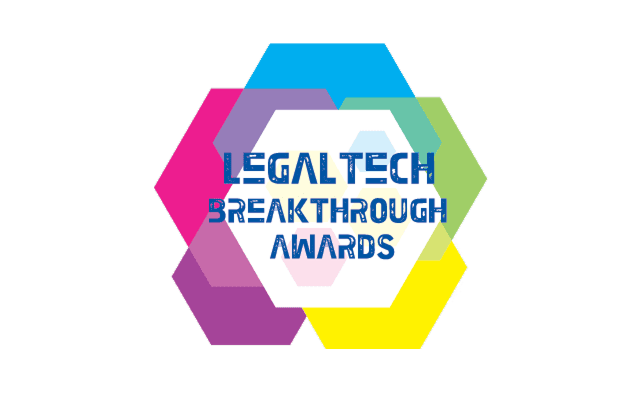Five Reasons to Use AI in Litigation
Discover five key reasons why leveraging AI in litigation can transform your legal practice, with insights from TrialView.
ArticlesAI is undoubtedly on the rise. As the use of AI in litigation becomes increasingly the norm, there is no denying the numerous benefits it brings with it.
From enhanced case prediction to increased efficiency, more lawyers are turning to AI tools for their disputes.We investigate the top five reasons for the adoption of AI in litigation below.
Five Reasons for Adopting AI in Litigation
1. Automation
The ability to repeat high-volume labour using less time, money and resources is the goal of most legal teams. Automating processes, based on the repeatability of that task, is what makes AI so compelling to use in a legal framework. Using AI gives lawyers the ability to recognise patterns in large datasets ahead of a document review exercise. Machine learning tools can find similar types of documents, or contextually similar documents and feed lawyers what the machine deems as more relevant to the investigation or proceedings.
To the same effect, the machine can de-prioritise documents deemed as less relevant. This leaves lawyers with more time to dedicate to highly skilled tasks, such as legal analysis and strategic planning.
Additionally other platforms, such as expertise automation, commoditise legal knowledge enabling clients to find relevant answers to legal questions without having to interact with lawyers. Some tools include will drafting and in some cases assisting individuals’ in litigation contexts.
2. Accurate prediction
AI is fundamentally enhancing litigation strategy through predictive analysis, moving beyond guesswork to data-driven forecasting. This is powered by a new generation of AI toolkits that allow firms to build analytics programmes customised to their specific needs. These algorithms assimilate vast amounts of historical data to predict case outcomes, trends, and potential threats. For example, they can analyse all past decisions in a relevant legal sphere, factor in the specific issues of a case and the assigned judge, and generate a probability for certain outcomes or costs. This ability to quantify previously uncertain variables, which were once the domain of educated guesswork, provides a powerful means to mitigate risk early on and allocate resources more effectively.
These previously unknowns, opined with some guesswork by experienced lawyers, can provide more certainty with the use of AI that can mitigate risk early on.
3. Legal research
There has been no time in history where lawyers could access vital information quicker than they can today. Whether it be understanding their client’s key documents, sourcing relevant pieces of legal research or contract clause analysis, AI-powered tools can get legal teams the information they need without the burden of high labour costs at a fraction of the time it would take for a human to conduct the same tasks.
With the development of generative AI, a step further is taken where briefings can be developed and further in depth analysis based on large datasets can be used to inform litigation strategies.
4. Reduced stress and workload for lawyers
Modern lawyers no longer leave their work at the office. Their work is now able to be conducted wherever there’s a stable internet connection, and the work stress and pressure that comes with this ever-present “online” culture is a huge challenge to the legal industry. However, certain automated workflows have been said to improve work satisfaction by supporting processes with repeatable, low-level tasks. Even basic technological functionality on eDiscovery and trial software platforms such as de-duplication and/or batch tagging are simple solutions to saving a lawyer’s time by looking at duplicate or near-duplicate documents.
This type of task would once upon a time require a lawyer’s review of each version separately, and was, understandably, subject to considerable levels of human error.
This also carries on to the Judiciary which is also taking steps to incorporate the use of AI to hasten the process of accessing justice. This is evidenced by the development of the "Judicial Guidance on the use of AI for Judicial Office holders." By automating routine tasks, AI provides a more efficient means of carrying out judicial work. Crucially, while it has not replaced the need for traditional legal research, the technology's ability to summarise lengthy documents has granted the judiciary ‘easy access to the guts of’ complex case files, legal precedents, and judgments.
5. Inevitability of AI
The use of AI is quickly becoming inevitable. Clients are not only starting to opt to use certain smart tools to automate certain processes in their own businesses, but they’re seeking to understand how the legal team they’re engaging with are testing, understanding and using different technologies to better their services and ultimately reduce billable time. Subsequently, the choice for lawyers to engage with the use of AI is dwindling rapidly, and arguably it’s only a matter of time before the use of AI will be necessary, or mandated, to comply with court guidelines.
Furthermore, the pandemic served as a catalyst for the widespread adoption of centralised digital platforms. These platforms were embraced for offering a secure, all-in-one solution that consolidated critical functions like e-bundling, timeline building, and document review into a single interface, thereby saving considerable time and costs. This trend has not only persisted
but evolved, with AI now being leveraged to intelligently automate and streamline these collaborative features, enhancing the platform's overall efficiency and user experience.
Discover more about AI in litigation
AI tools such as TrialView can enhance collaboration, compliance, and the overall strategic approach to legal proceedings and litigation, allowing you to work with enhanced speed and efficiency for every aspect of your case.
If you’d like to learn more about the use of AI in litigation and find out how tools such as TrialView can help you work smarter, not harder, you can book a tailored demo to find out more about the benefits for yourself. Alternatively, contact our team for further information.
See TrialView in action
As one of the leading litigation platforms, TrialView is the perfect addition to your tech stack. Book a free demo to get started.
Book a demo.svg)



